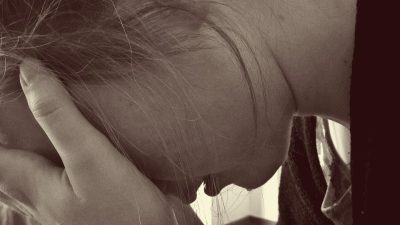Teen Depression

Most people have feelings of depression at times in their lives. Sometimes it’s related to an event – a death in the family, losing a job, challenges at school, a break-up with a boyfriend or girlfriend, a divorce – leaving a person feeling lost, scared, sad, or helpless. This is all very normal. But, for some people, these feelings are daily, or near daily, and are emotions that are not linked to an event or situation – seemingly for no apparent reason – and can dramatically impact their ability to carry on their day-to-day lives.
Depression is more than just having a bad day. The Depression and Anxiety Association of America defines depression as, “a condition in which a person feels discouraged, sad, hopeless, unmotivated, or disinterested in life in general. When these feelings last for a short period of time, it may be a case of ‘the blues.’ But when such feelings last for more than two weeks and when the feelings interfere with daily activities such as taking care of family, spending time with friends, or going to work or school, it’s likely a major depressive episode. Major depression is a treatable illness that affects the way a person thinks, feels, behaves, and functions.”
Depression is one of the most common mental disorders in the United States today, with an estimate 15-20% of teenagers having a depressive episode by the time they reach adulthood. Like many other illnesses, it often runs in families and can be brought on by genetics, stress, trauma, life circumstances, changes in neurochemical levels in the brain, o the use of drugs and alcohol. These possible causes include a combination of psychological, biological, and social sources of distress. Unlike just “being down” or “having the blues”, the symptoms of depression continue for at least two weeks and can last months if left untreated.
Symptoms of Depression
- changes in sleep
- changes in appetite
- changes in weight
- fatigue
- loss of energy
- loss of pleasure from activities
- trouble thinking
- lack of concentration
- difficulty making decisions
- lack of interest
- agitation
- negative self-perception
- a sense of hopelessness
- feelings of guilt or worthlessness
- physical aches and pain
- suicidal thoughts
Behavioral Changes Associated with Depression
- changes in friends
- isolation
- trouble at school
- use of drugs and alcohol
- aggression and irritability
- lack of attention to physical appearance and hygiene
The good news is that support, treatment, and strategies can help. Talk therapy with a qualified mental health professional, changes in lifestyle, and sometimes medication prescribed by a doctor are very effective in treating depression.
If you think your child is depressed, be sure to check it out. Take your child to the family doctor to rule out any other illness. If your doctor believes that depression is a possibility, reach out to a qualified mental health professional for a full evaluation and diagnosis They will then develop treatment options and a treatment plan for your child. For more information about depression, treatment options, and support, visit the “Parent” page at Erika’s Lighthouse.
Websites
Books for Parents
- Handbook of Childhood and Teen Depression by Erika’s Lighthouse
- The Disappearing Girl: Learning the Language of Teenage Depression by Dr. Lisa Machoian
Books for Teens
- Conquering the Beast Within – How I Fought Depression and Won…And How You Can, Too by Cait Irwin
- Beyond the Blues: A Workbook to Help Teens with Depression by Lisa M. Schab, LCSW
